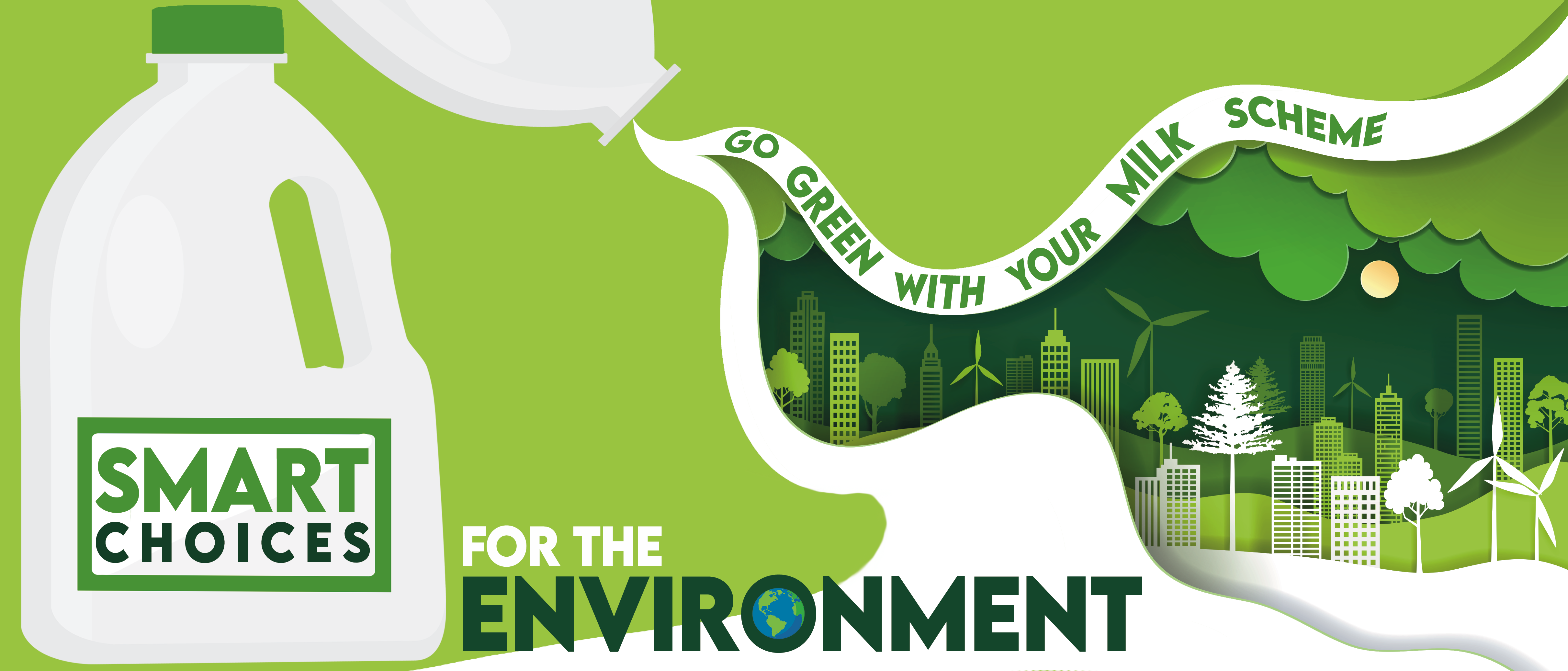
Convenience – but at what cost? Plastic packaging is renowned for its rugged durability, but it’s that exact quality which poses a threat to our planet and its wildlife. According to the House of Commons, an estimated five million tonnes of plastic is used every year in the UK, nearly half of which is packaging. With 2020 being a wake-up call in more ways than one, global communities have seen on a grand scale how a small change can make a big difference to the world we live in.
At Cool Milk, we’re acutely aware of the fresh focus on the ways in which products are packaged, delivered, and consumed – and milk is no exception. With the recent ban on single-use plastic straws in the UK, suppliers are under more pressure than ever before to create sustainable solutions, and we’re investing in doing just that. However, plastic isn’t the only peril threatening the environment – it’s merely one of the most visible. A far bigger threat is apathy and the unwillingness to consider change.
What’s right for one school or nursery might not be feasible for another, and there is no single solution. Whilst more time and research is needed to create the ‘ideal’ delivery system, there are steps we can take now to reduce our negative environmental impact without compromising on quality – and the statistics may surprise you! Scroll to explore the options available to see how you too can go green with your milk scheme!
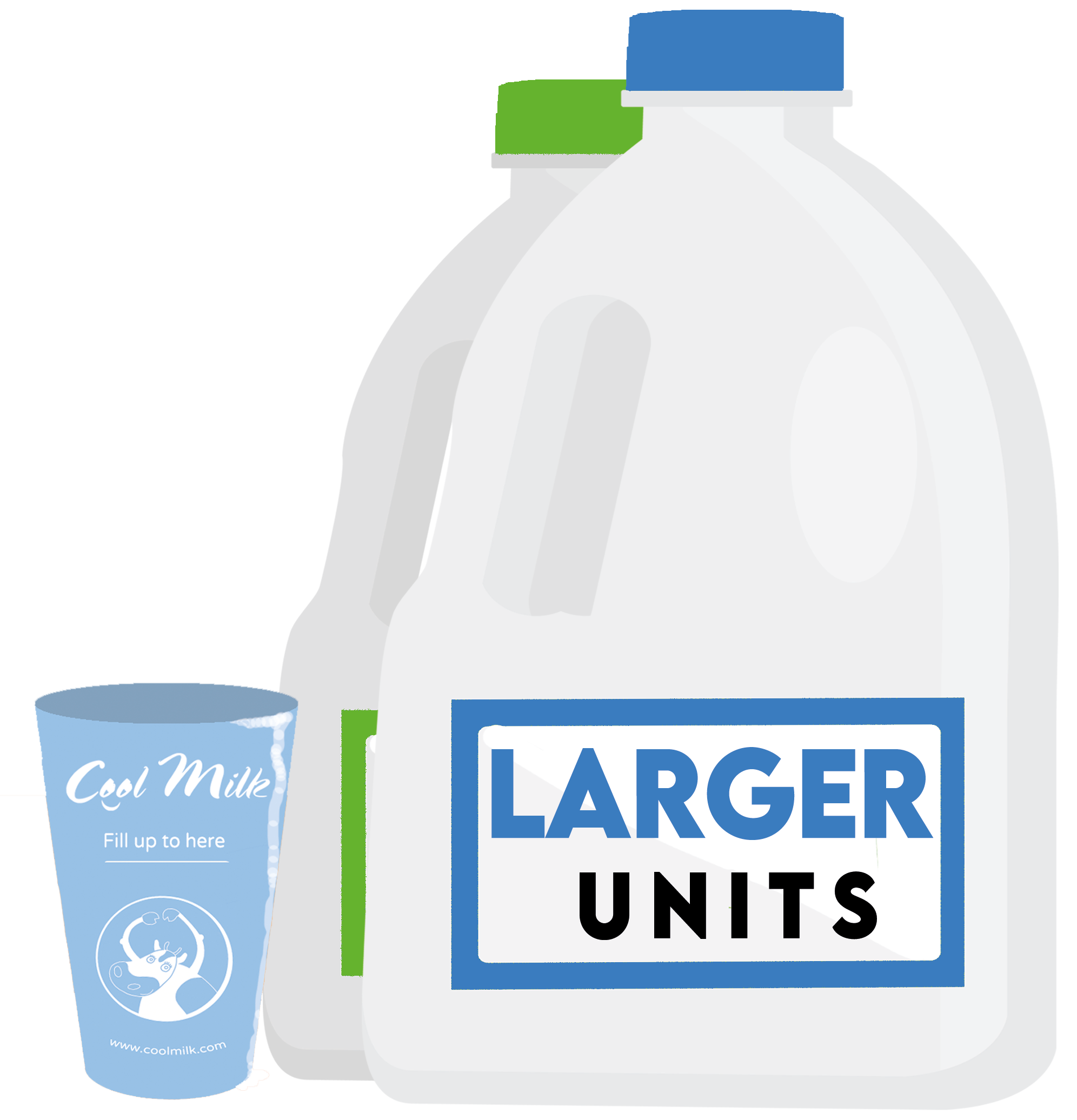
LARGER CONTAINERS
One of the most effective ways to reduce waste in your school milk scheme is to opt for larger containers. This way, the children receive their daily milk entitlement but with minimal packaging – and absolutely no straws. Yes, this uses plastic – but let’s look at the facts rationally: our larger 2 litre poly bottles are readily recyclable in most localities across the UK and, due to being a lightweight material, it puts minimal strain on delivery vehicles – reducing fuel usage and associated pollution more than some ‘greener’ alternatives!
As an extra bonus, we’ll even provide FREE robust and reusable cups for the children to enjoy their milk from – complete with a ‘fill to here’ line so that they don’t miss a drop. This way, the only waste is if you don’t recycle – or if the little ones aren’t thirsty!
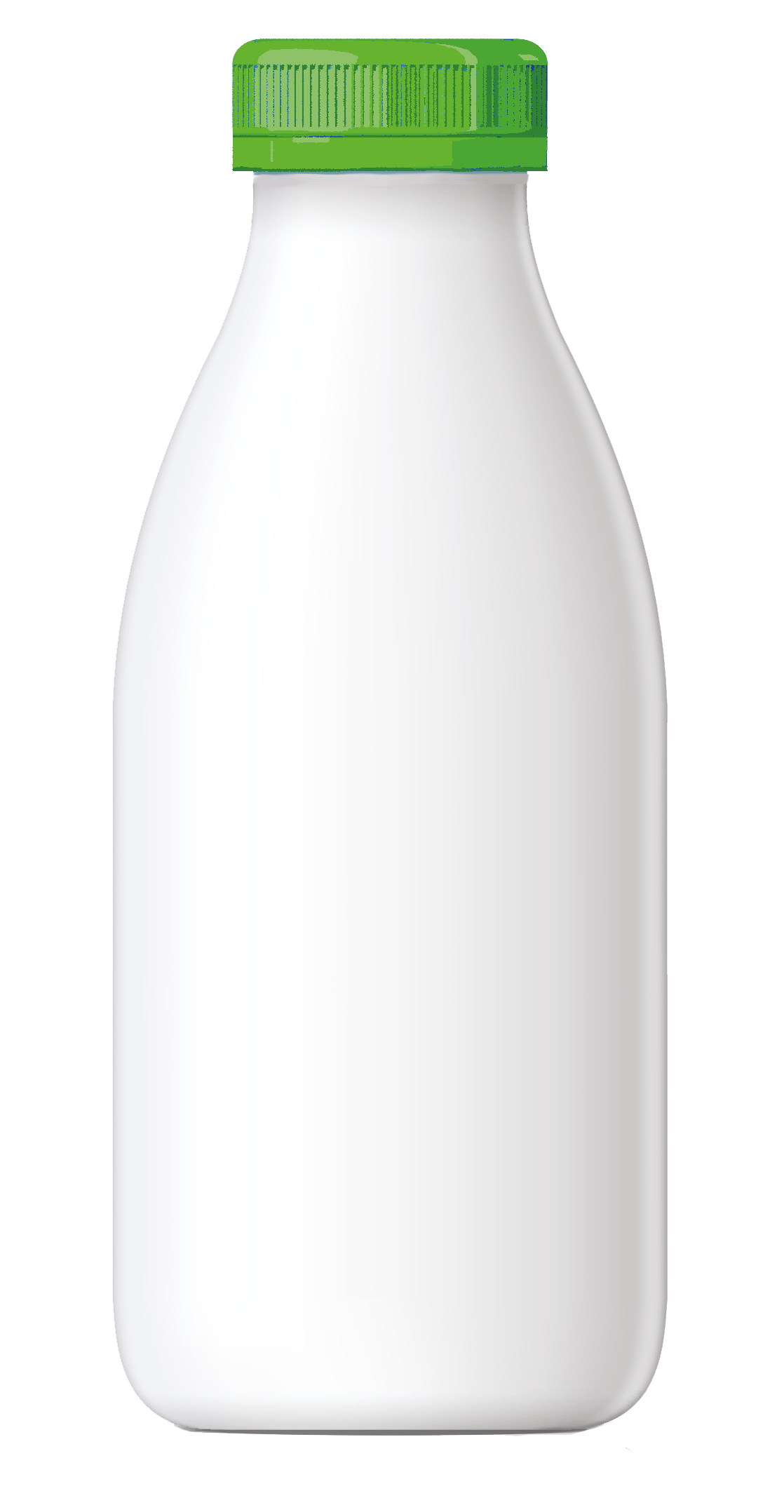
GLASS BOTTLES
An old solution to the modern problem of plastic pollution, glass bottles can be reused and are readily recyclable in most locations. You can request these from our friendly Customer Service team if you feel this is right for your setting and we will do our best to supply them – depending on availability from your local dairy farms and suppliers.
However, while glass is transparent – its environmental impact isn’t quite as clear cut. In fact, a recent article (citing a study from Detritus journal) revealed that glass is up to four times more damaging for the environment than plastic.
This is due to a variety of factors, but includes an increased carbon footprint due to its weight, which puts more pressure on delivery vehicles and increases fuel usage and pollution as a result.
There is also its large mining footprint, which requires raw materials such as silica and sand to be extracted from the ground – causing land degradation and can pollute surrounding water sources. Finally, glass is easily breakable, which reduces the lifespan of the materials and can lead to broken bottles being discarded with waste and not recycled. Of course, this poses a problem for many schools due to health and safety, so many prefer to avoid it entirely.
INDIVIDUAL PORTIONS – “THIRDS”
Individual cartons are a good choice for schools and nurseries in terms of hygiene and ease of distribution, but this has to be measured against their environmental impact too.
Each carton contains a child’s exact 189ml daily milk entitlement (1/3 pint) with layers of aluminium and plastic to provide a waterproof seal and to protect against light and oxygen. These have historically not been widely recyclable due to the lining- but this does seem to be slowly improving (depending on your location and local authority).
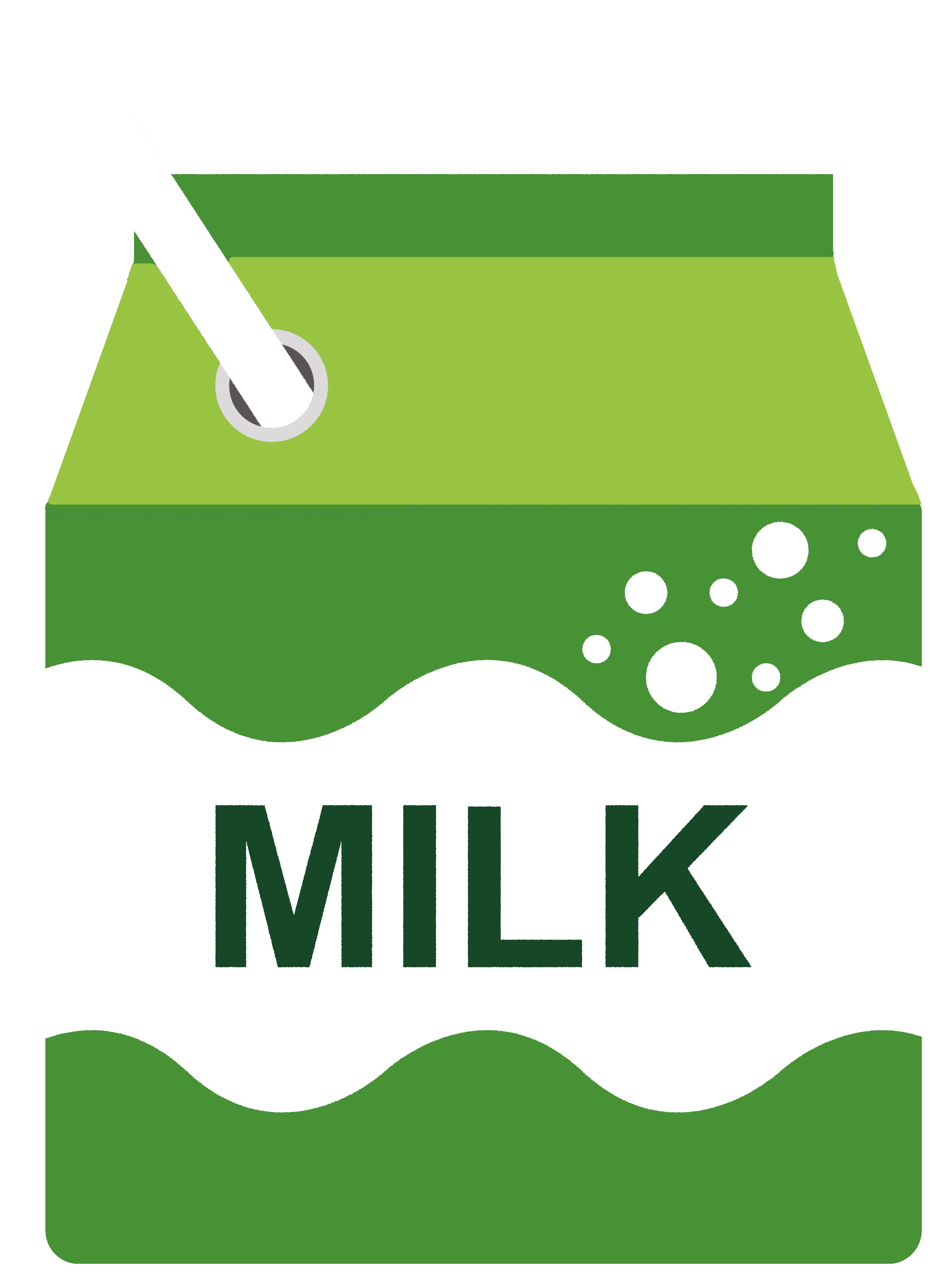
Although the recent ban on plastic straws does not apply to schools, school milk producers are working towards replacing plastic straws with paper alternatives and we hope that no plastic straws will be in use beyond the end of the current school year.
Ask a member of our dedicated Customer Services Team if you think thirds might be best for your setting.

What works for your setting?
As with most things, there is no singular, set answer for ‘going green’ – all we can do is make smart choices that minimise waste and work best for your setting on a practical level.
We have to balance the everyday needs of our little ones against the long-term health of the planet, and we’re constantly learning new ways to do this.
From ensuring a strong focus on the need to reduce, re-use and recycle, to being more aware of how our seemingly small choices can have a wider impact, we can all do our part to protect the planet. Whether your setting will best benefit from individual cartons, larger units of measure or glass bottles is entirely your choice – one which we’ll support every step of the way…
Reusable bottles and beakers
Don’t forget, if you’re not using 189ml self-contained cartons, you can ask our friendly team about being sent reusable bottles or beakers for your little ones.
Yes, it means a little bit of extra washing up – but think of the material you’ll avoid throwing away! Settings quickly notice the benefits that this ‘reduce, re-use, recycle’ approach has on their waste, and the children in schools and nurseries across the UK trialling this approach vocally agree that it makes them more mindful of actively cutting their waste.
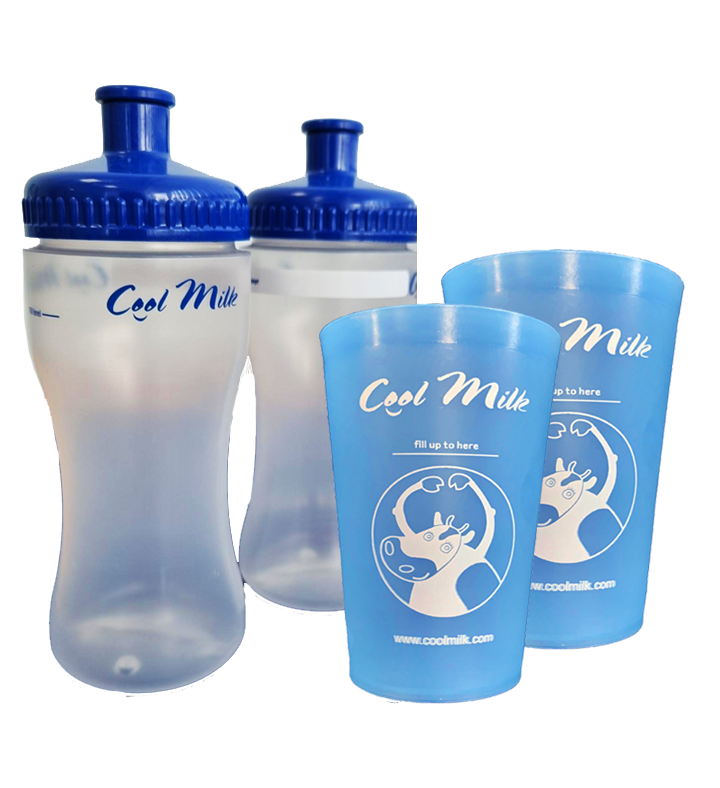
Bottles or beakers? Whilst both have their benefits, the beakers are great for teaching the children about dexterity and balance whilst pouring, whereas the bottles are better for avoiding any spillages and can be labelled with a child’s name – allowing them to be easily cleaned on site or sent home for parents to pop in the dishwasher.
“Pleased we made the change!” Testimonials
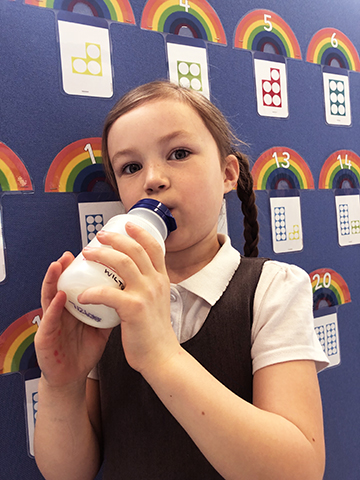
Reusable bottles
“At Lincoln Carlton Academy, we are proud to have trialled the use of reusable milk bottles,” enthused Mrs Malam, Headteacher.
“The children have loved having their own personalised bottles. Children at LCA love milk and understand how it is one of the healthiest drinks they can have. One of the children told me that she loves her bottle as it’s got her name on it, and she loves how milk makes her bones healthy.”
“We really value being able to help reduce the carbon footprint in our own small way,” added Mrs Malam. “Let’s hope other schools follow in our footsteps and have reusable bottles themselves very soon.”
Glass bottles
Milldown CofE Academy wanted to completely eliminate packaging waste so they now receive their milk in glass pint bottles.
“Our children have done a lot of work on the issue of plastic pollution and we decided that we should try to cut out all single-use plastic wherever possible”, reported head teacher James Law. “We were delighted that Cool Milk were able to arrange for our milk to be delivered in glass pints, and the children and teachers have adapted very quickly to the new way of doing things – we’re really pleased we made the change.”

